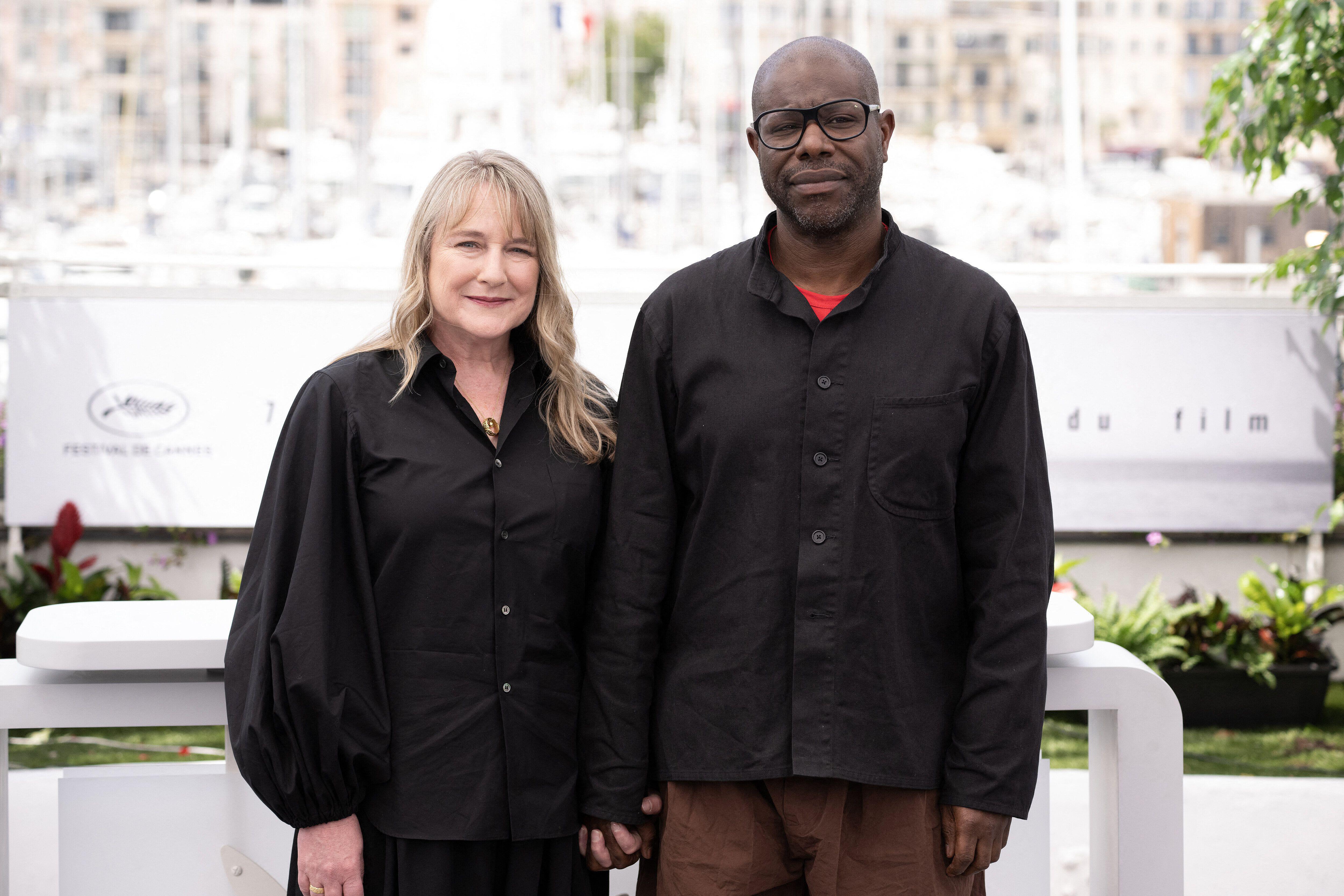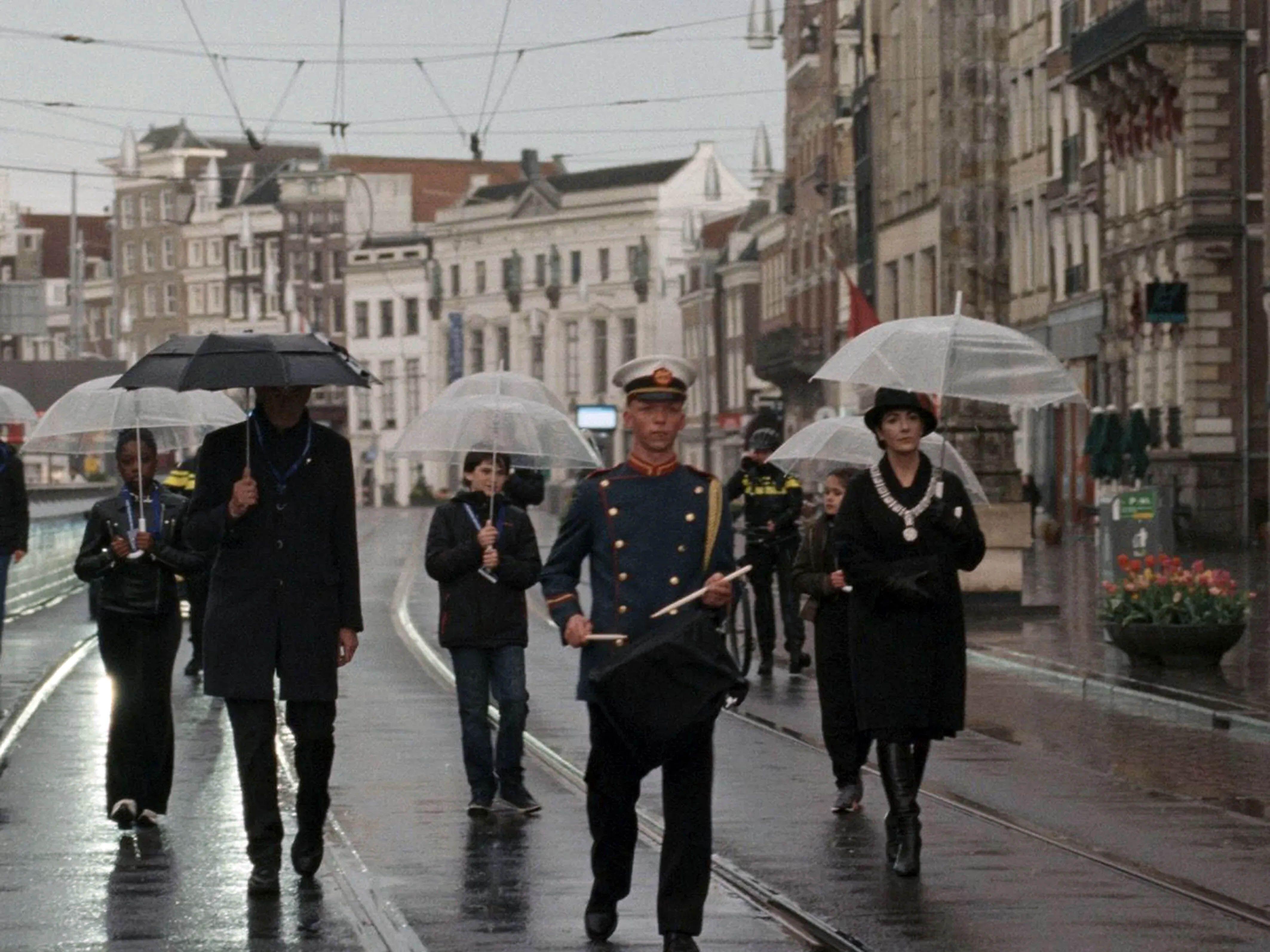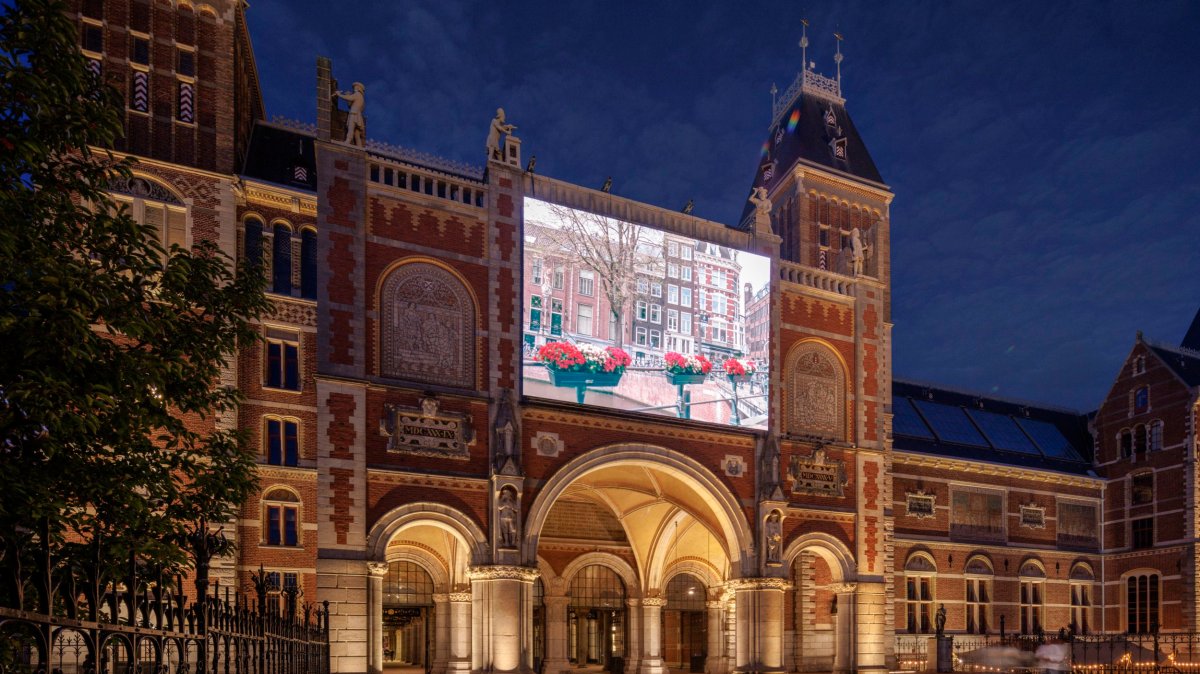A 34-hour documentary film by the British director Steve McQueen charting the German occupation of Amsterdam, the Holocaust and Dutch resistance has opened on the façade of the national museum of the Netherlands.
Occupied City tells the story of “occupation, persecution and freedom” through more than 2,000 addresses in Amsterdam, a city famous for the serene beauty of its 17th century townhouses and canals.
Shown continuously on a giant screen dominating the front of Amsterdam’s Rijksmuseum, the film “holds up a mirror to the city”, said McQueen, 55, who divides his time between London and the Dutch capital.

Steve McQueen’s film was inspired by his wife Bianca Stigter’s book Atlas of an Occupied City: 1940-1945
DAVID NIVIERE/ABACA PRESS/ALAMY
• Steve McQueen: ‘People have been deaf to antisemitism’
“You’re looking at the same perspectives that people looked at then,” he told The Times.
“I just felt when I was coming from London, and was here for the first time, that there were these parallel lives going on. The same doorways, the same sort of building, the same sight lines, perspective and such. It is interesting to feel that you’re living with the past in a real way, an everyday way. Living in Amsterdam feels like living with ghosts.”
Inside the museum, the film, originally made in 2023 but never before shown in its full length, is accompanied by a matter-of-fact but often harrowing voiceover by Melanie Hyams, a British actress and writer based in Amsterdam.
Shot on deserted streets during the Covid pandemic, the film has a haunting quality as hours of footage portray contemporary Amsterdam, “from the mundane to the monumental”, and also captures protests against lockdown measures.
Overlying the contemporary footage, the words reveal often hidden and forgotten stories of oppression, betrayal, such as that of Anne Frank’s family, terror and death as well as resistance, including civil disobedience, in a small country where there was no escape.
“It’s like an archaeological dig, isn’t it, because you see the 17th century, but then we’re talking about something which happened 80 or 85 years ago,” said McQueen.
Atlas of an Occupied City: 1940-1945 by Bianca Stigter, 61, McQueen’s Dutch wife, is the inspiration for the film; a monumental book, published in 2019, that used letters, diaries, police reports and newspapers, legal and illegal underground publications to uncover the city’s stories.
“I really try to get a lot of direct quotes from people that lived through it, that might have been victims then or manage to survive or resist. So you really hear those voices, very loud and clear,” Stigter said.
In 1940 the German occupiers set out to transform the Netherlands into a model “national socialist” or Nazi state, including the dispossession and destruction of Amsterdam’s Jews.

McQueen’s film was made in 2023 but has never before been shown in full
ALAMY
The city’s Jewish population was forced to live in restricted areas, people were stripped of their jobs and possessions, then rounded up in raids before being dispatched to a Westerbork, a Dutch transit concentration camp.
Some 100,000 Jews, including the Frank family, passed though the camp before being sent to killing centres, primarily Auschwitz and Sobibor in occupied Poland.
Only 5,000 survived and by 1945, three-quarters of Dutch Jews had been exterminated including about 60,000 from Amsterdam, a grim backdrop to the city’s history of occupation.
• Occupied City review — Steve McQueen’s grim four-hour documentary
While there was collaboration, particularly by homegrown Dutch Nazis and many in authority, including in Amsterdam’s municipality, there was resistance, including in February 1941 a general strike at the treatment of Jews which was rapidly and brutally crushed.
In an occupied country, with borders entirely surrounded by German occupied countries or Germany itself, there was nowhere to run for the Dutch resistance who harboured an estimated 25,000 Jews, including many children.
“We’re here to show beauty but we’re also there to show the hidden scars of history because this is what we are as humans,” said Taco Dibbits, the museum’s director. “As a Brit living in Amsterdam, McQueen allows us to see our own present and past through different eyes.”
Occupied City will be shown continuously on the south façade of the Rijksmuseum from Sep 12 to Jan 26 2025, with a voiceover version running inside. The museum will stay open for 36 hours for a screening of the entire film on Oct 11

